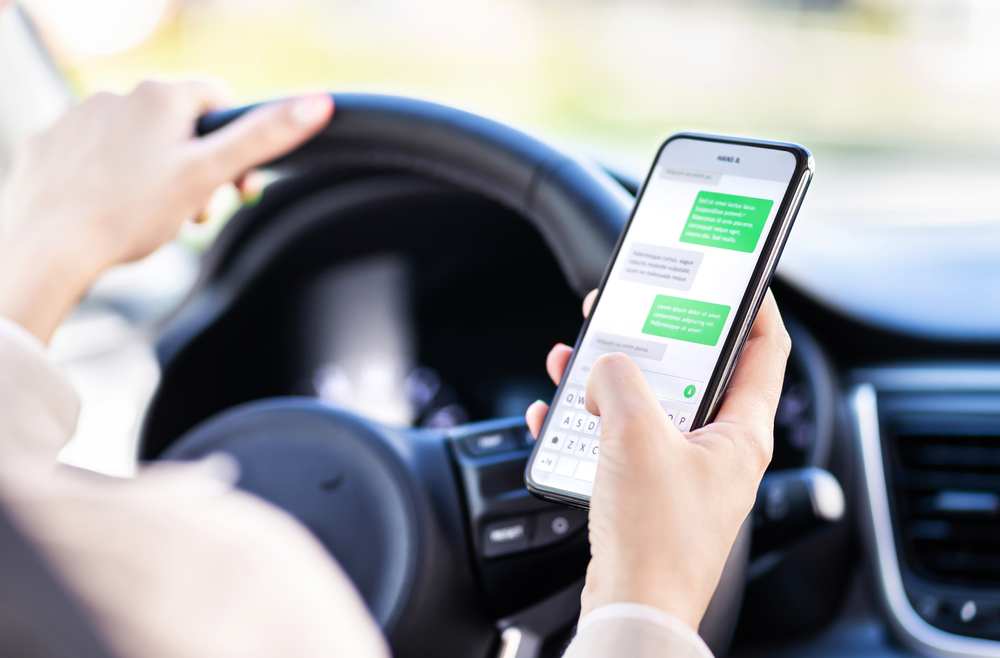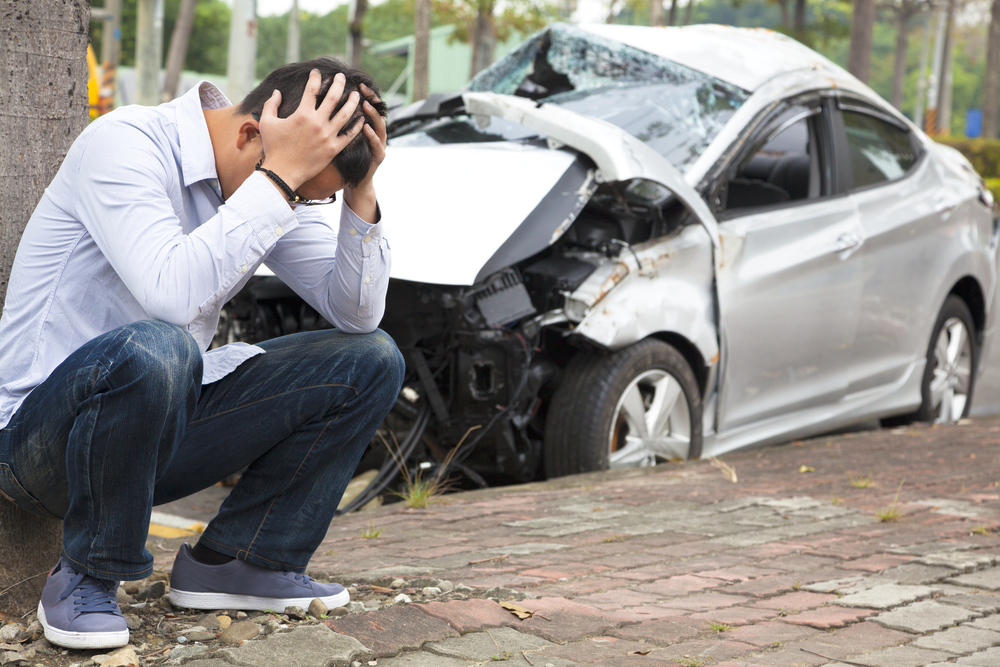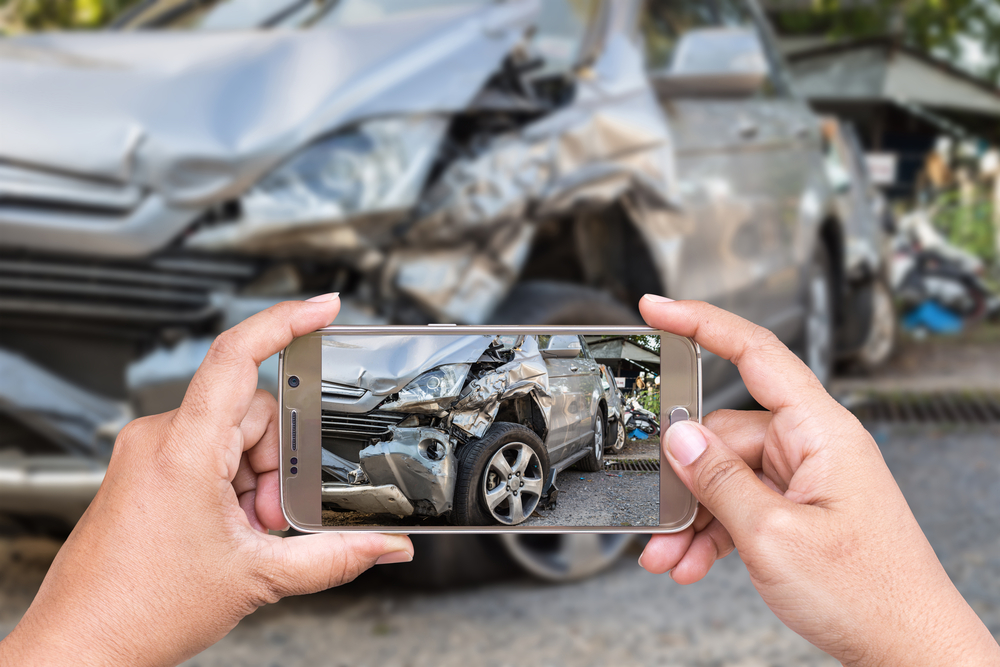
Common Causes of Car Accidents and How to Avoid Them
Protect Yourself on Washington Roads: Understanding Risks and Prevention
Washington Car Crash Reality
Every year, thousands of Washingtonns are injured in car accidents. Behind each collision is a story—sometimes a distracted driver, sometimes a mechanical failure, often something entirely preventable. If you’re worried about staying safe on the road or dealing with the aftermath of a crash, it helps to understand the most common causes of car accidents in Washington, along with practical steps to avoid them. At AskLitigation, we’ve seen firsthand how proper knowledge can reduce risk and help you make informed decisions after an incident.
If you’re currently recovering from an auto accident, know that support is available. Our Washington car accident attorneys can guide you through your legal options and connect you with resources for recovery.
Distracted Driving Dangers
Distracted driving is the leading cause of car accidents in Washington. Checking a text, adjusting the GPS, or even talking with passengers can divert your attention for just a second—but that second can change everything. According to state crash data, distraction plays a role in thousands of collisions each year.
Tips to Stay Focused
- Silence your phone or set it to “Do Not Disturb” before driving
- Program your route in your GPS before you leave
- Ask passengers to help with navigation or music selection
- Keep snacks and drinks secure, so you’re not reaching while driving
- Pull over if you need to take an urgent call or text
For more on the legal implications of distracted driving, see How to Prove Fault in a Car Accident Case.
Speeding on Washington Roads
Speeding remains a top contributor to serious and fatal crashes. Even going a few miles over the limit can reduce your ability to react and increase stopping distance. In Washington, exceeding posted speed limits or driving too fast for road conditions is a violation of state law and puts every driver at risk.
How to Slow Down Safely
- Allow extra travel time, especially during heavy traffic or bad weather
- Pay attention to posted limits, which may change in construction zones or school areas
- Watch for speed cameras and enforcement zones
- Use cruise control when appropriate to maintain a steady pace
Want to learn more about your rights after a speed-related crash? Visit Washington Traffic Accidents for detailed information.
Impaired Driving Risks
Driving under the influence of alcohol or drugs—prescription or otherwise—is illegal and extremely dangerous. Washington’s DUI laws are strict, and a conviction can lead to criminal penalties and civil liability if you injure someone else.
Avoiding DUI Dangers
- Never get behind the wheel if you’ve had alcohol or impairing substances
- Arrange a designated driver or use a rideshare service
- Report suspected impaired drivers to the authorities
- Store prescription medications in the glove compartment if needed, but never drive if they affect your abilities
Aggressive and Reckless Driving
Tailgating, weaving through traffic, road rage, and running red lights all increase the chance of a crash. These behaviors are not only dangerous but can also lead to steep penalties and civil liability in Washington.
How to Respond
- Stay calm if another driver is aggressive—avoid eye contact and don’t engage
- Give reckless drivers plenty of space
- Report dangerous driving to local law enforcement
- Always obey traffic signals and yield signs
If you’ve been hurt by a reckless driver, our team can help explain your next steps. Learn more on our Personal Injury page.
Weather-Related Hazards
Washington is known for sunshine, but rain, fog, and even wildfires can create dangerous road conditions. Hydroplaning, reduced visibility, and slippery roads are frequent causes of accidents in certain seasons.
Safe Driving in Bad Weather
- Slow down and increase following distance during rain or fog
- Use headlights in low visibility (but avoid high beams in fog)
- Replace windshield wipers regularly
- Pull over if conditions become unsafe
See more about liability in hazardous conditions at Premises Liability.
Failing to Yield or Stop
Failure to yield at intersections, crosswalks, or when merging is another leading cause of Washington crashes. These incidents often involve pedestrians or cyclists and can result in serious injury.
Yielding Tips
- Always come to a complete stop at stop signs and red lights
- Yield to pedestrians in crosswalks, even if they’re crossing slowly
- Watch for bicyclists and give them space to merge or turn
- Be extra cautious in school zones and residential neighborhoods
For more on pedestrian safety, see Legal Rights of Injured Pedestrians.
Vehicle Defects and Maintenance Issues
Sometimes, accidents happen due to tire blowouts, brake failures, or other mechanical problems. Washington law requires drivers to keep vehicles in safe working order.
Maintenance Checklist
- Check tire pressure and tread regularly
- Replace brake pads as needed
- Schedule routine oil changes and fluid checks
- Address dashboard warning lights promptly
Learn more about your rights in these cases on our Product Liability page or see Common Defective Vehicle Parts Causing Accidents.
Drowsy Driving Danger
Fatigue can impair judgment and reaction time as much as alcohol. Long commutes and late-night driving are common in Washington, making drowsy driving a real hazard.
Prevent Fatigue-Related Crashes
- Get adequate sleep before long drives
- Take breaks every two hours or 100 miles
- Switch drivers if possible
- Pull over for a quick nap if you feel drowsy
Inexperienced or Unlicensed Drivers
Teen drivers and those without proper licensing are statistically more likely to be involved in accidents. Washington’s graduated licensing laws aim to reduce these risks.
Tips for New Drivers
- Practice with a licensed adult in low-traffic areas, such as neighborhood streets or designated practice lots in Washington cities.
- Avoid driving at night or during peak Seattle-area traffic until you’re comfortable with local road patterns.
- Take a Washington-approved defensive driving course to learn state-specific rules and safe driving habits.
- Always carry your Washington driver’s license and proof of insurance, as required by state law.
Parents can learn more about keeping young drivers safe on our Traffic Accidents resource page, including information about Washington’s graduated licensing laws.
Roadway Design and Conditions
Washington’s diverse geography means drivers encounter everything from mountain passes to urban freeways. Poorly marked lanes, potholes from winter weather, and unclear signage can contribute to accidents. While drivers should remain vigilant, Washington cities and counties are responsible for maintaining safe roads.
Navigating Unsafe Roads
- Report hazards like potholes or missing signs to the Washington State Department of Transportation (WSDOT).
- Slow down in construction zones, especially on I-5, I-90, and other major Washington highways.
- Use extra caution in areas with frequent roadwork, such as Seattle, Tacoma, and Spokane, or where traffic patterns change due to seasonal events.
If a road defect played a role in your crash, you may have legal options under Washington law. Find out more at Premises Liability.
Multi-Vehicle Pileups
Washington’s freeways, especially around Seattle and during rainy weather, are notorious for chain-reaction crashes. Fog, ice, and sudden congestion can quickly lead to multi-car pileups.
How to Reduce Risk
- Maintain a safe following distance, especially on wet or icy Washington roads.
- Stay alert in heavy traffic and avoid sudden lane changes on busy highways like I-5 and I-405.
- Watch for brake lights several cars ahead, particularly during rush hour or when visibility is low.
Avoiding Common Accidents
You have more control than you may realize when it comes to preventing car accidents in Washington. Staying alert, following state traffic laws, and maintaining your vehicle according to local climate needs are your best defenses.
Everyday Prevention Habits
- Buckle your seatbelt every time
- Drive sober and well-rested
- Follow speed limits and traffic signs
- Limit distractions behind the wheel
What to Do After a Crash
If you’re involved in a collision, safety comes first. Move to a secure spot, check for injuries, and call for help if needed. Document the scene, exchange insurance information, and consider contacting an attorney for guidance.
For a detailed post-accident checklist, see Steps to Take After a Car Accident to Protect Your Claim.
Frequently Asked Questions about Car Accident Causes in Washington
What are the most common causes of car accidents in Washington?
The most common causes include distracted driving, speeding, impaired driving, failure to yield, and poor vehicle maintenance. Weather and road conditions also play significant roles.
How can I avoid a car accident in Washington?
Stay focused, obey speed limits, avoid distractions, never drive under the influence, and keep your vehicle well-maintained. Defensive driving and awareness of road conditions can help you stay safe.
What should I do immediately after a car accident?
Check for injuries, move to a safe location if possible, call 911, exchange insurance details, and document the scene with photos. Contact a qualified attorney for advice on your rights.
Who is liable for a car accident in Washington?
Washington follows a fault-based system. The driver who caused the accident—due to negligence, distraction, or other violations—is typically responsible for damages. Multiple parties can share liability.
Are there laws against distracted driving in Washington?
Yes. Washington law prohibits handheld cell phone use while driving. Violations can lead to fines and may affect liability in accident claims.
Browse Other Articles for "Car Accidents" in Washington:
Start Your FREE Consultation
Complete the form for a Free Consultation. No upfront fees, swift action, and we're only paid when we succeed for you.
Ask Us If You Qualify
We’re here to help you take on your fight—whether it’s a car accident, a dangerous drug, or a workplace injury gone wrong. One call starts it all, and we’re with you every step, no upfront cost required.
- Free Case Review
- No Fees Until Victory
- Millions Recovered
- Personal Strategy
- California Coverage
- Relentless Case Pursuit


